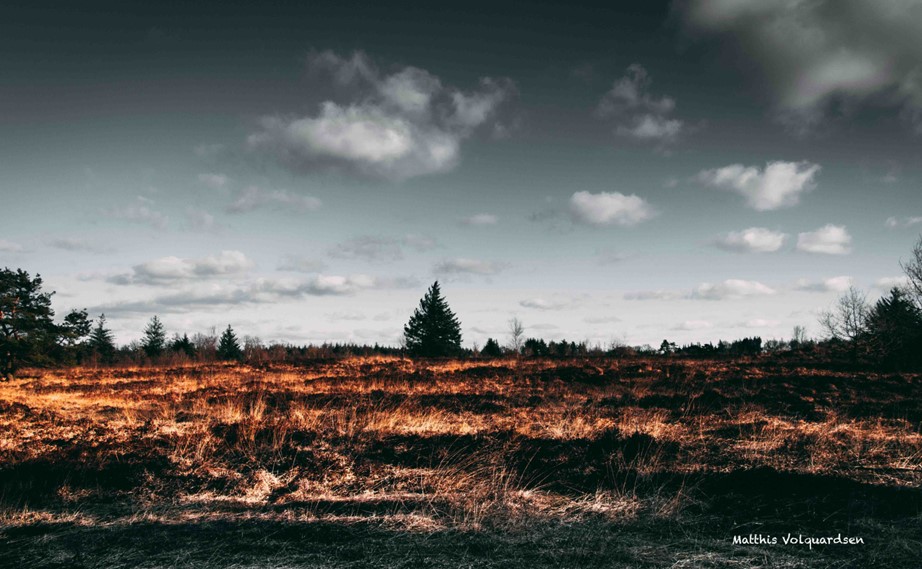It’s been a warm summer and fall, with record-breaking warm temperatures recorded every month from June 2023 through this past September. It’s even hotter than climate scientists expected. 2024 is on track to be the warmest year ever.
In addition to the unusual heat wave, drought conditions persist in much of the country.
Climate change “is no longer theoretical or a distant threat, an abstract one,” explains Aradhna Tripati, a climate scientist from UCLA who helped author the latest national climate assessment. “It is not something that happens in the future here. It is not something only happening in places far away from where we live. All weather is now being affected.”
In an article for Vox titled “It’s not normal for the East Coast to be on fire,” Paige Vega writes, “This extreme period of dry weather is a part of the larger picture that scientists have come to expect: that our weather will become more extreme and unpredictable and that we will collectively experience more pronounced swings from incredibly dry periods to incredibly wet periods.”
Brian Fuchs, a climatologist with the National Drought Mitigation Center, explains that “when it’s 80 degrees in New York in November, trees and vegetation are still consuming water. There’s an extra period of demand on the overall water system, and that taxes water sources — lakes and streams begin to draw down and the ground holds onto less moisture. Vegetation that grew earlier in the year begins to dry out — and fuel wildfires. It’s increasingly important for people to know where their water comes from and conserve it the best you can at any time.”
In this week’s chapters from our companion book for this series, Kyle Meyaard-Schaap offers helpful suggestions for Christians who want to contribute to addressing climate change. He begins with a familiar charge: tell your story.
That is, we can share our own stories about how climate change is affecting us and invite others to find their own ways to join the effort. However, “in order for our stories to be invitational,” explains Schaap, “we must do not three but four things: bond, connect, inspire, and invite.”
But how do we get started?
As Christians, we’re familiar with the idea of spiritual disciplines, even if we don’t call what we do disciplines. Prayer is one of the most basic spiritual disciplines.
And when spiritual disciplines become habitual, we naturally grow spiritually. We open ourselves to God’s offer of grace. Our priorities align more with God’s plans for us. We worry less, and we find joy.
Jesus encourages us to set aside worries—even worries about climate change. While this may seem contradictory, spiritual disciplines help us see and do the things we need to do rather than worry about them.
You cannot serve both God and money.
Matthew 6:24
“We actually know how to solve climate change,” writes Schaap. “We have the knowledge, and we have the technology. All that’s missing is the will.”
The issue comes when we make things sacred that aren’t. That is, when we take positions and make decisions contrary to the priorities God has established and called us to honor. “You cannot serve both God and money,” Jesus tells us. It’s a matter of priorities.
The exchange of goods, or barter, is a communal ritual that connects our needs with the gifts of others. Money is merely a medium of exchange that underwrites barter. The priority, however, isn’t the exchange or the medium. The priority is serving God by embracing divine priorities.
We’re all earthkeepers, a sacred calling established by God at creation. God empowers each of us to do our part but loves us enough to allow us to make our own decisions.
In his book, Schaap provides two websites with ideas for participating in earthkeeping: Project Drawdown and Living the Change. Each offers ideas that you can consider turning into habits and spiritual disciplines.
In my experience, following God brings great joy, but it also brings heartbreak when we put anything else before God.
You can join us each Sunday in person or online by clicking the button on our website’s homepage – Click here to watch. This button takes you to our YouTube channel. You can find more information about us on our website at FlintAsburyChurch.org.
A reminder that we publish this newsletter that we call the Circuit Rider each week. You can request this publication by email. Send a request to FlintAsburyUMC@gmail.com or let us know when you send a message through our website. We post an archive of past editions on our website under the tab Connect – choose Newsletters.
Pastor Tommy
Parts of our series are inspired by Kyle Meyaard-Schaap. Following Jesus in a Warming World: A Christian Call to Climate Action. Downers Grove, IL: InterVarsity Press, 2023.
Paige Vega. “It’s not normal for the East Coast to be on fire.” © Vox, Nov 12, 2024. Retrieved from: link
Gavin Schmidt and Zeke Hausfather. “We Study Climate Change. We Can’t Explain What We’re Seeing..” © New York Times, November 13, 2024. Retrieved from: link

